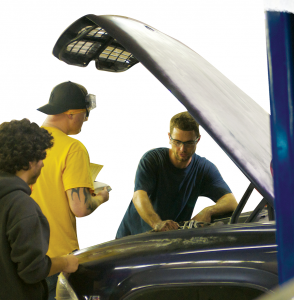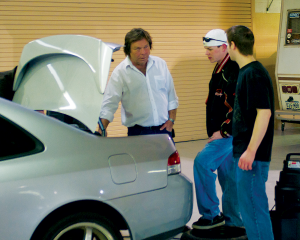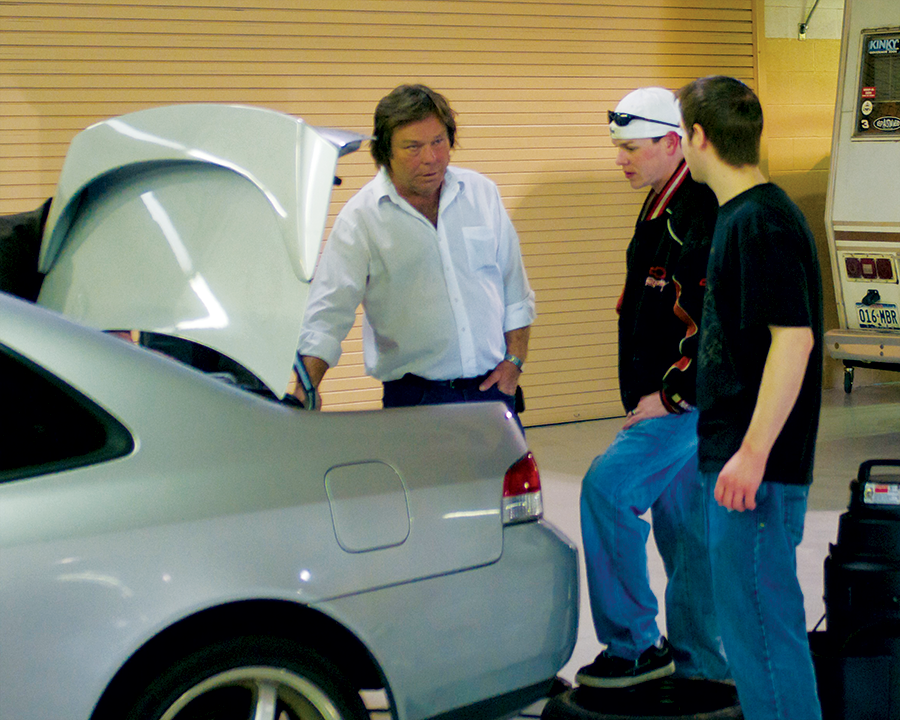By Tristian Evans/south news editor

Photos by Martina Treviño/The Collegian
Even in a bad economy, there is no shortage of people needing their cars fixed. Since South Campus opened in 1967, the automotive department has offered courses that prepare students to enter the automotive field.
The department, unique to South, offers courses in mechanical repair, collision repair, paint and bodywork and courses dealing with lawn mowers, motorcycles and outboard motors.
“We have roughly 150-200 students at any one time, over 200 different sections, and most classes are eight weeks long,” said department chair Steve Elms.
Elms has taught in the automotive department for 10 years, the last three serving as chair of the department, and has more than 50 years experience working with cars.
Elms said the National Automotive Technicians Education Foundation certifies the department, which prepares students to take the Automotive Service Excellence exam to become repair professionals. The training program that TCC students go through parallels that of the ASE certification program.
“Not only do we teach the ASE, but we’re certified to teach it,” he said.

The program takes two years to complete: four full semesters and two summer sessions. The cars the students use to get hands-on experience belong to the college, belong to students or have been donated by manufacturers or individuals.
Usually, students having trouble with a car can’t just drop it off at the department and have a student or instructor take a look at it like in a regular garage. This happens only in special cases, such as a special project.
“If you bring your car in, and we are working on a particular project, we [would] work on it,” Elms said.
Automotive instructor Orlando Grijalva said students should be prepared to work hard and work smart, a phrase he believes sums up working in the automotive field.
“Students coming into this field should be well-prepared and ready to deal with technology,” he said.
Student Jamal Coronado has been interested in working on cars since he was a child, largely because of his father.
“Almost everybody on my dad’s side of the family worked on cars, and I started working on them around the time I went to middle school,” he said.
Coronado said the automotive program is convenient for him and will allow him to quickly get his certification so that he can enter the field.

